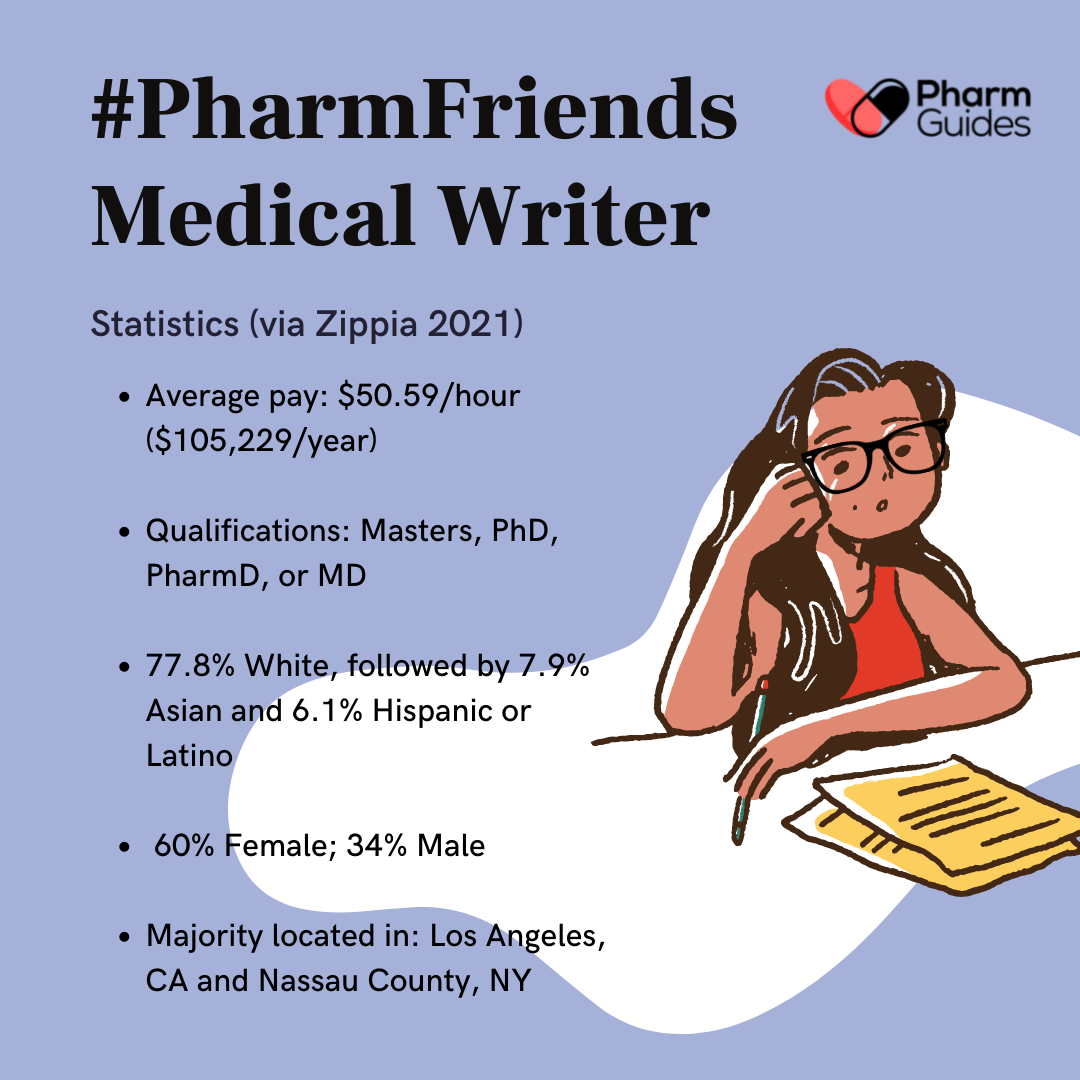What is a medical writer?
A medical writer is a pharmacist who writes medical content for companies. The company may be an advertising agency, medical journal or publisher. A medical writer’s job is to turn medical research into writing that will tell the doctor about the medicine in a way that informs and persuades them about possible treatment options. The material can be presented to audiences of medical professionals or medical consumers.
A medical writer can choose to work within the medical company, at a medical communications agency, or as an independent freelancer. A medical writer is generally expected not just to collect information from medical journals and reports but also to interpret the data for the benefit of medical science. Medical writers must be knowledgeable in pharmaceutical medicine, research, statistics, medical practice, medical law and medical ethics.
In the medical industry a medical writer is required to hold the appropriate medical qualifications (e.g., PharmD or MD). Other writers may not hold any medical qualifications but be experts in their field of expertise e.g. pharmaceutical sciences, medical devices, medical technology etc.
Statistics (as of 11/2021):
- Salary range: $51/hour ($105,229/year) via ZipRecruiter
- Qualifications: MD, PharmD, PhD, or Masters
- 60% Female; 34% Male; 5.5% Unknown
- 77.8% White; 7.9% Asian, 6.2% Hispanic or Latino; 5.8% Black or African American
- Work conditions: Remote and onsite, 9A to 5P, weekends off
- Recommended Skills: medical or pharmaceutical background, writing, authoring, editing, clinical trial research experience, literature reviews, FDA procedures, etc
Medical Writer Career Paths
Source: Zippia.com 
Now let’s get into the interview!
NH the Medical Writer
Was there networking involved in getting this position or did you point-blank apply on a listing?
In this case, I applied to a job listing. But networking can be involved for some people!
How did you get into medical writing?
This is something I was interested in pharmacy school and explored as a career option when we were close to graduating. Other opportunities arose and began working at a specialty pharmacy. Of course I knew I wanted to transition to medical writing or more generally medical communications at some point. Honestly, just googled medical writing jobs and some other similar positions.
Explain a bit about your job.
My role has become a bit more client facing as I’ve grown at the company. But on a day to day I work on a range of deliverables from disease state presentations for internal use, Congress materials, advisory boards, articles, some more creative deliverables like animations, etc.
What type of pieces would you recommend a budding writer should have in their portfolio when applying?
Hmm I’m not sure. It’s a bit challenging as your work as a medical writer can be confidential and in most instances your name isn’t attached to anything. If you assist with publications then you can have yourself acknowledged. But in general I think writing short articles online or perhaps manuscripts and posters that you’ve contributed to could be helpful. I think most places won’t ask for a portfolio but it’s a plus if you have one. Once you get far enough into the interview process there is some sort of test to assess your abilities and that can vary company to company.
What do you like about your job? And not like?
I enjoy creating and disseminating information. Of course on some level I miss patient interactions and that warm fuzzy feeling when you help someone. haha I guess I don’t like some of my more tedious tasks (like updating data and annotating things). But it’s a valuable exercise and does help build your knowledge base!
The American Medical Writers Association has a certificate program that is recognized in the medical writing field and encouraged for people interested in writing professionally. Is a Medical Writer Certified (MWC) credential necessary?
I don’t think the AMWA certification is necessary but definitely a plus as someone’s career progresses. I think to qualify for a certification you need two years of full time working experience which is why I’ve put it on the back burner for now. Some companies really value the clinical experience a pharmacist can bring as well as the discipline that comes with the profession. I used upwork to freelance for a few months before job hunting just to spruce up my skills. Medical communications agencies also use freelancers from time to time so it may be worth reaching out to local ones.
What advice would you have for pharmacy students who are interested in this career path?
Try and get a rotation in medical communications or medical affairs. Having this can give you a better sense of what this career path entails and may possibly open some doors for you! Lastly, I think it’s always important to self reflect and try to see where you can improve your work. Once you get into this line of work you really are working with some really amazing writers! Always good to keep up on your skill set. 🙂
